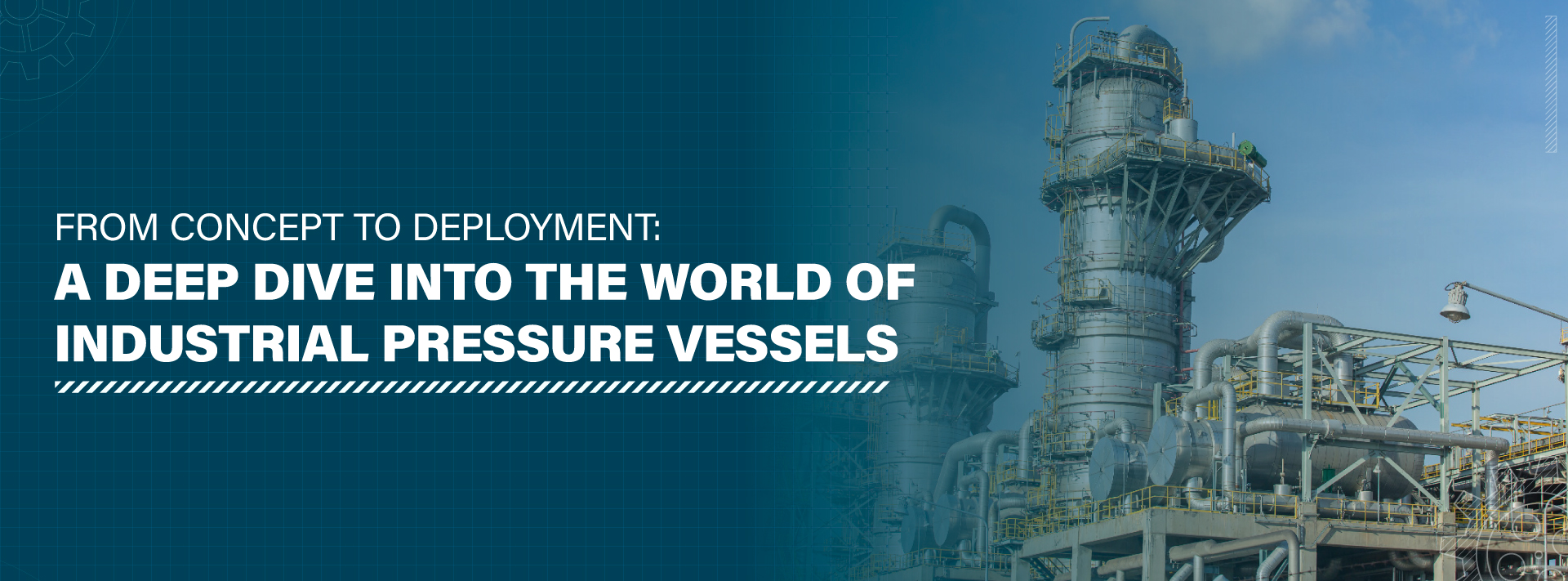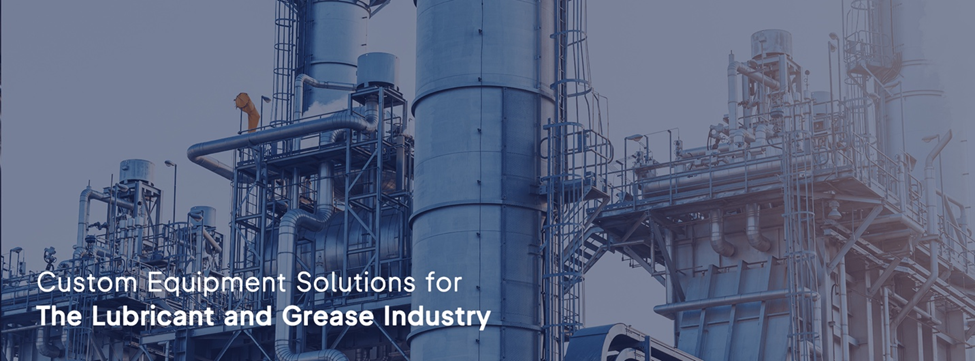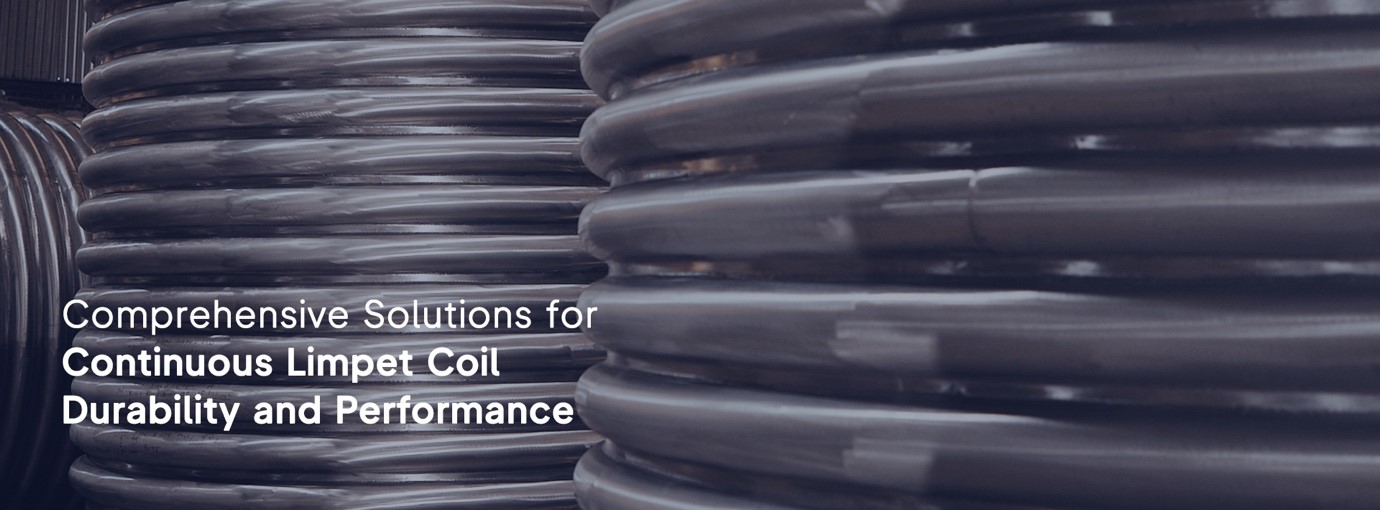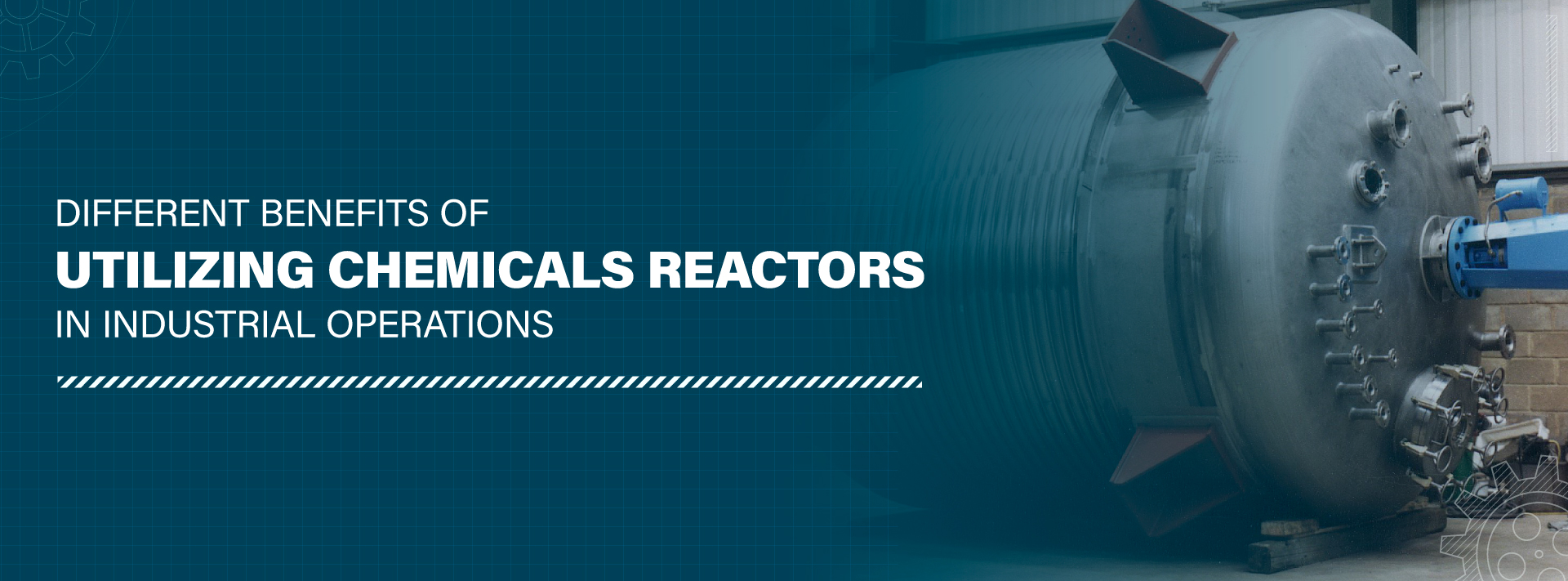Pressure vessels are important tools that help many industries. An industry pressure vessel is a closed container manufactured and designed to hold gases and liquids at a pressure substantially higher or lower than normal atmospheric pressure. A pressure vessel can be anything, including glassware, autoclaves, compressed gas cylinders, vacuum chambers, and custom-designed pressure vessels.
These leak-proof containers come in various sizes and shapes and are used for different purposes. The shape differs from conical to spherical and cylindrical, and it is an essential part of the oil and gas and petrochemical industry.
With a rich legacy spanning four decades, Stalwart International emerges as a premier choice for tailored pressure vessels, including distillation columns and ASME-certified vessels. Renowned as one of the leading pressure vessel manufacturers in India, Stalwart International blends unparalleled expertise with adherence to industry-best practices, ensuring the delivery of vessels that not only meet but exceed regulatory compliance rules and standards.
The Science Behind Pressure Vessels Fabrication
Pressure vessels are equipment designed to hold liquids, gases, or vapours at high pressures. They let important chemical and physical changes happen in a pressurized space, making them fundamental equipment for many industrial processes.
Pressure vessel fabrication is a complicated process, requiring controlled cutting, bending, welding, and assembling processes of metals for vessel fabrication. Several safety protocols and regulations set by ASME (American Society of Mechanical Engineers) are essential to follow during fabrication.
Some building materials, like pipes, forgings, plates, welding rods, and wires, are molded and forged from the raw materials as per the specified high-pressure vessel requirements. The welded parts are assembled and go through a cooling and sandblasting process before applying primer or paint.
However, before the fabrication process begins, here are some important things to keep in mind:
Design Concept
It is essential to specify the shape, size, and dimensions of the vessel. The pressure vessel manufacturer will choose the material required for manufacturing as per the intended purpose.
Stress and Strain Analysis
Before fabrication, mechanical calculations are performed to evaluate the strength of the material.
Fabrication Drawings
The designers will generate fabrication or assembly drawings that comprise material parts, manufacturing standards, viewing sections, welding or bolting information, and specific guidelines that serve as instructions to facilitate the fabrication process.
Different Types of Material Used For Manufacturing an Industrial Pressure Vessel
Pressure vessels have to work with a lot of pressure inside. That’s why the materials used must be very strong and tough and not break from corrosion. Here are the different materials that pressure vessel suppliers supply pressure vessels:
Stainless Steel
Stainless steel is affordable, easy to join, long-lasting, and strong. Widely used for pressure vessels, stainless steel has good resistance to wear and tear and corrosion . It can also handle high heat well. Grades 304 and 316 do not break from salty or acidic conditions.
Titanium
Like stainless steel, titanium does not break from corrosion. Big high-pressure vessels made of titanium can travel long distances because of its lightweight properties. Titanium works best when high-pressure vessels are required in situations with high pressure and increased chances of corrosion.
Aluminium
Aluminium is light but strong. This process aids in creating large pressure vessels that people can move. It is long-lasting, strong, and safe even around dangerous things. Aluminium conducts heat well and does not easily corrode and break down. Aluminium works well for chemical equipment and heat exchangers that must handle pressure.
Nickel Alloys
Nickel alloys like Inconel 625 can handle very high heat and pressure. They don’t break or change shape. Nickel alloys work well for nuclear reactors, planes, and rockets. They also work well for underwater oil and gas tools. They don’t break down from corrosion or deformation in tough conditions.
Read Also: Working Principle Of The High-Pressure Vessel
Industrial Pressure Vessel Installation and Maintenance
Besides careful manufacturing and designing the pressure vessel, it is fundamental to install it properly and ensure timely maintenance. Let’s understand the different factors you should look for in your pressure-vessel supplier before purchasing a pressure vessel:
Precise Installation
It is essential to ensure that your pressure-vessel supplier should provide the installation process. The installers will follow the manuals and drawings exactly. Qualified welders and riggers do the work to set up the vessels, supports, and pipe connections, as shown in the design. It is done to make sure everything can handle outside forces and pressures.
Regular Inspections
Periodic inspections, utilizing tools like ultrasonic testing and visual inspections which aim to detect early signs of corrosion, erosion, or cracks, preventing catastrophic failures.
Preventive Maintenance
Preventive maintenance is a part of the maintenance process where the technicians conduct regular cleaning procedures and adjust flanges and check and tighten fasteners to prevent any component of the vessel from corroding as a result of chemical deposits or joint leakage. Modern monitoring devices and pressure decay techniques are utilized in leak tests to detect even the tiniest of breaches. Analysis of process records can predict residual life with greater precision via mechanical integrity evaluations.
Process Optimization
Through analysis of process data and operational patterns, process optimization strategies can be implemented to minimize material waste, boost energy efficiency, and enhance overall equipment efficacy.
Recertification and Life Extension
Existing vessels can be retrofitted for new applications or recertified to comply with updated codes, extending their service life and minimizing replacement costs.
Minimising Downtime
Manufacturers can swiftly mobilize a rapid emergency response team, which is available 24/7, in any location in India to address breakdowns and urgent repairs, thereby preventing clients from incurring expensive production losses.
Read also: A Comprehensive Guide To Different Types Of Pressure Vessels
Trust Stalwart International for End-to-End Pressure Vessel Solutions
Stalwart International offers a comprehensive suite of high-pressure vessel solutions, encompassing design and engineering, precision manufacturing, specialist installation and maintenance services. With over four decades of experience in crafting customized pressure vessels, including heat exchangers, reactors, autoclaves, and columns, we prioritize client-specific needs and deliver dependable solutions.
Our in-house team conducts rigorous analyses, including stress analysis, thermal analysis, and finite element modeling, to ensure optimal performance and adherence to safety standards like ASME, CE, and IBR. We leverage advanced technologies and stringent quality control measures to guarantee peak security, reliability, and performance of our pressure vessels.
Our extensive range of services extends beyond fabrication, encompassing installation, maintenance, process optimization, recertification, and emergency response, ensuring long-term equipment health and operational effectiveness across diverse industries.





